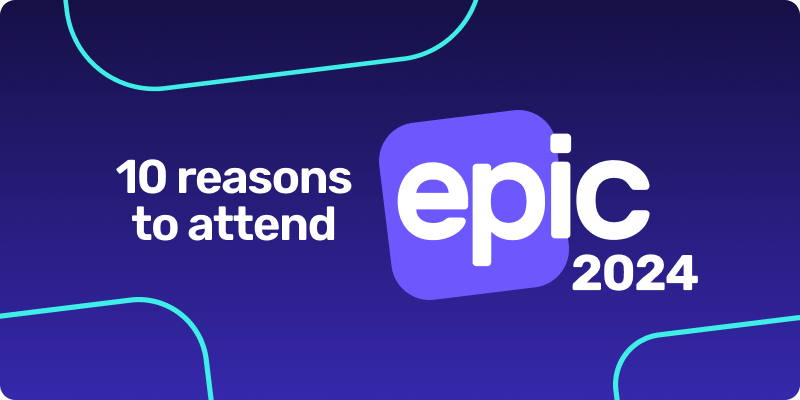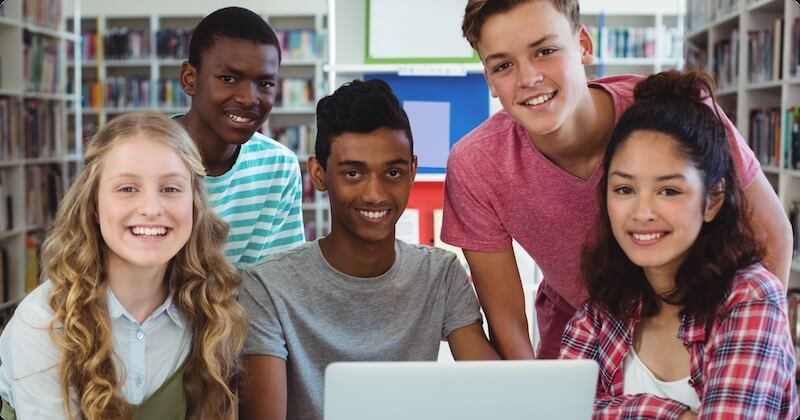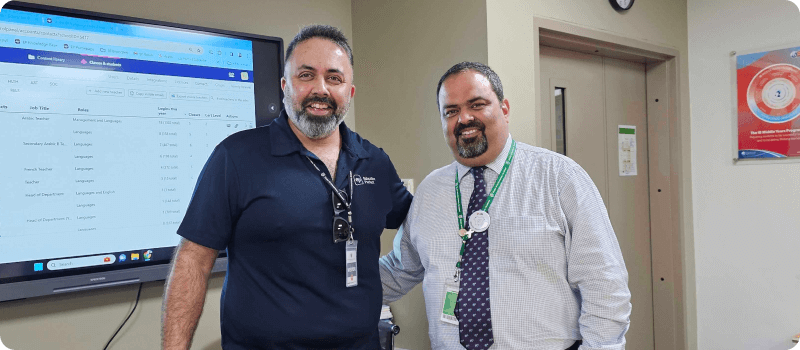Four major feedback levels and student impacts
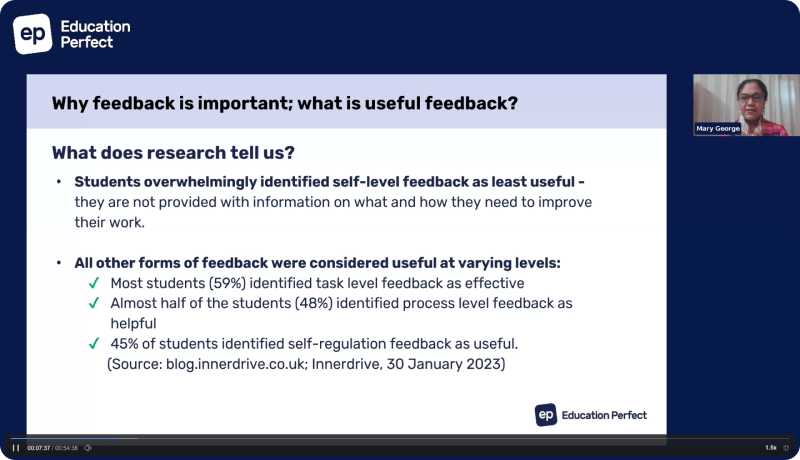
At a recent Education Perfect (EP) webinar, I was fortunate to hear Mary George, an international school consultant and experienced IGCSE teacher, share her expertise on effective feedback strategies for IGCSE and KS3 students. Mary spoke about the different kinds of feedback and their impacts in the classroom. For those of you who didn’t attend the webinar, I’m excited to share Mary’s memorable insights with you.
During the webinar, Mary outlined four main feedback levels:
#1 – Task level feedback
Task level feedback is based on how well students understand and perform tasks. From research gathered through a student survey, this level of feedback is widely considered to be the most effective, from a student’s perspective.
#2 – Process level feedback
Process level feedback is based on the process needed to allow students to understand the task. Over half of the surveyed students reported finding this type of feedback helpful.
#3 – Self-regulation level feedback
Self-regulation level feedback involves students self-monitoring, directing, and regulating their own actions. 45% of surveyed students find this type of feedback helpful.
#4 – Self-level feedback
Self-level feedback involves personal evaluations of an individual, which are usually positive. Surveyed students found this type of feedback least helpful.
Follow Mary on LinkedIn: here
How to support different levels of feedback
I also had the pleasure of contributing to the EP webinar, where I outlined a number of ways that EP supports all feedback levels. This includes:
- Providing instant feedback on automatically marked questions
- Requiring students to re-do questions until they answer correctly, with explanations for why their answers are wrong
- Allowing teachers to provide written or verbal feedback on extended response questions
- Providing model answers for extended response questions
- Allowing students to peer-review and give feedback on other students’ work
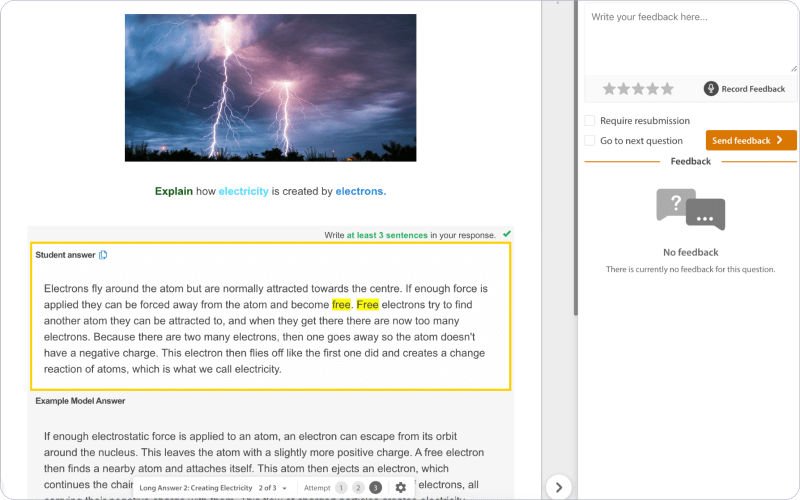
EP is also developing new ways to support different levels of feedback by using artificial intelligence (AI). This will give students automotive feedback based on their extended feedback questions.
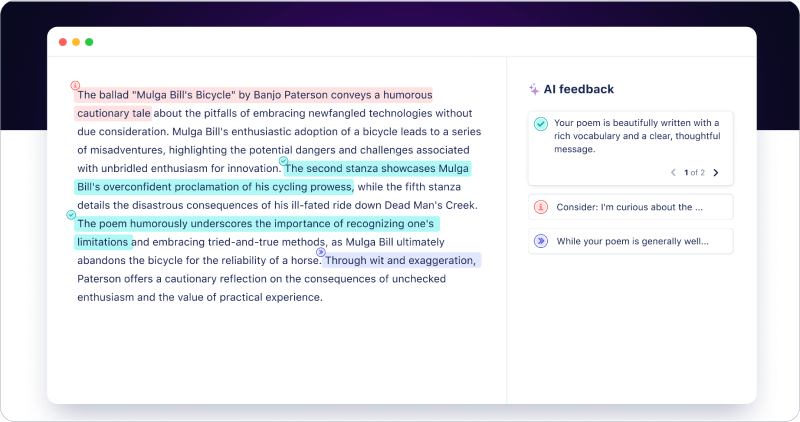
We can’t wait for this feature to be released in late 2024.
Fostering student self-regulation
There are several ways that the EP platform can support self-regulation feedback, including allowing:
- Students to self-evaluate their work
- Students to write reflection paragraphs after each lesson
- Teachers to customise individual student lessons and assessments
EP also facilitates 1:1 and small group conversations, which can help to decide the students’ next learning steps.
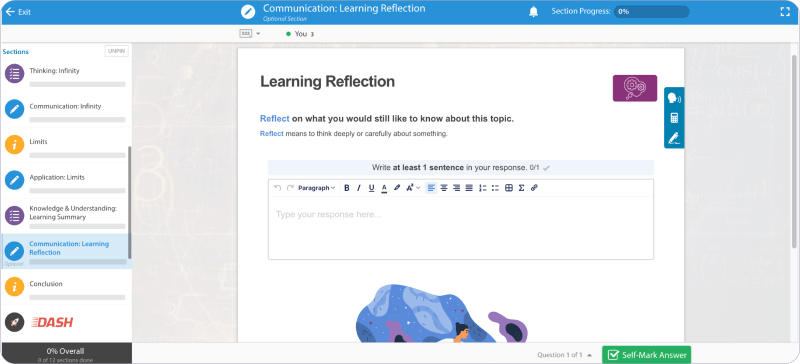
It was so beneficial to hear Mary’s insights into student feedback, and to see all the interaction we have with the audience and their questions during the webinar. This definitely generated some valuable discussion.
If you’d like to watch a recording of the webinar, register here.
Interested to learn how EP’s features can support your classroom needs? Book a demo with an Education Perfect representative today!
Author bio

Philippa Kruger | Curriculum Specialist – Global Languages and International Schools
Philippa is a former French teacher, with over a decade of teaching experience, including 5 years as Head of Faculty. For the last nine years, Philippa has worked with EP Languages to transform the platform from a simple vocabulary tool into a learning ecosystem, catering to all language needs.

